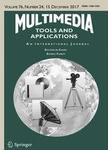版权所有:内蒙古大学图书馆 技术提供:维普资讯• 智图
内蒙古自治区呼和浩特市赛罕区大学西街235号 邮编: 010021

作者机构:Chitkara University Institute of Engineering and Technology Chitkara University Punjab Rajpura India Department of Computer Science & ampEngineering Chitkara University Punjab Rajpura140417 India
出 版 物:《Multimedia Tools and Applications》 (Multimedia Tools Appl)
年 卷 期:2024年
页 面:1-22页
核心收录:
学科分类:1004[医学-公共卫生与预防医学(可授医学、理学学位)] 1201[管理学-管理科学与工程(可授管理学、工学学位)] 1002[医学-临床医学] 1001[医学-基础医学(可授医学、理学学位)] 08[工学] 0835[工学-软件工程] 0714[理学-统计学(可授理学、经济学学位)] 0701[理学-数学] 0812[工学-计算机科学与技术(可授工学、理学学位)]
摘 要:Affective computing has garnered substantial attention for its potential in mental health diagnostics, including the nuanced differentiation of emotional states in depressed versus non-depressed individuals. This study significantly advances the field by introducing EmoFusion-AttNet, a state-of-the-art computational model that employs a multimodal approach for emotion classification. Leveraging a statistically robust and demographically diverse sample, participants were first screened for depressive symptoms using BDI & PHQ-Q questionnaires, ensuring a representative distribution. The EmoFusion-AttNet model employs Convolutional Neural Networks (CNNs) to extract spatial features from facial data, while Long Short-Term Memory (LSTM) networks capture the temporal intricacies of EEG signals. A fusion layer equipped with an attention mechanism synthesizes these multi-dimensional data streams, enhancing feature selection and accuracy. Impressively, the model achieved a classification accuracy of 95%, setting a new benchmark for emotion-based classification models. To validate these findings, we conducted an in-depth analysis of EEG data, focusing on Alpha and Theta band activities. Our results revealed a decrease in Alpha power and an increase in Theta power in the depressed group, aligning with current neurophysiological understandings. These findings validate the model’s clinical applicability and set the stage for future research in affective computing, particularly its implications for mental health diagnostics and treatment planning. © The Author(s), under exclusive licence to Springer Science+Business Media, LLC, part of Springer Nature 2024.